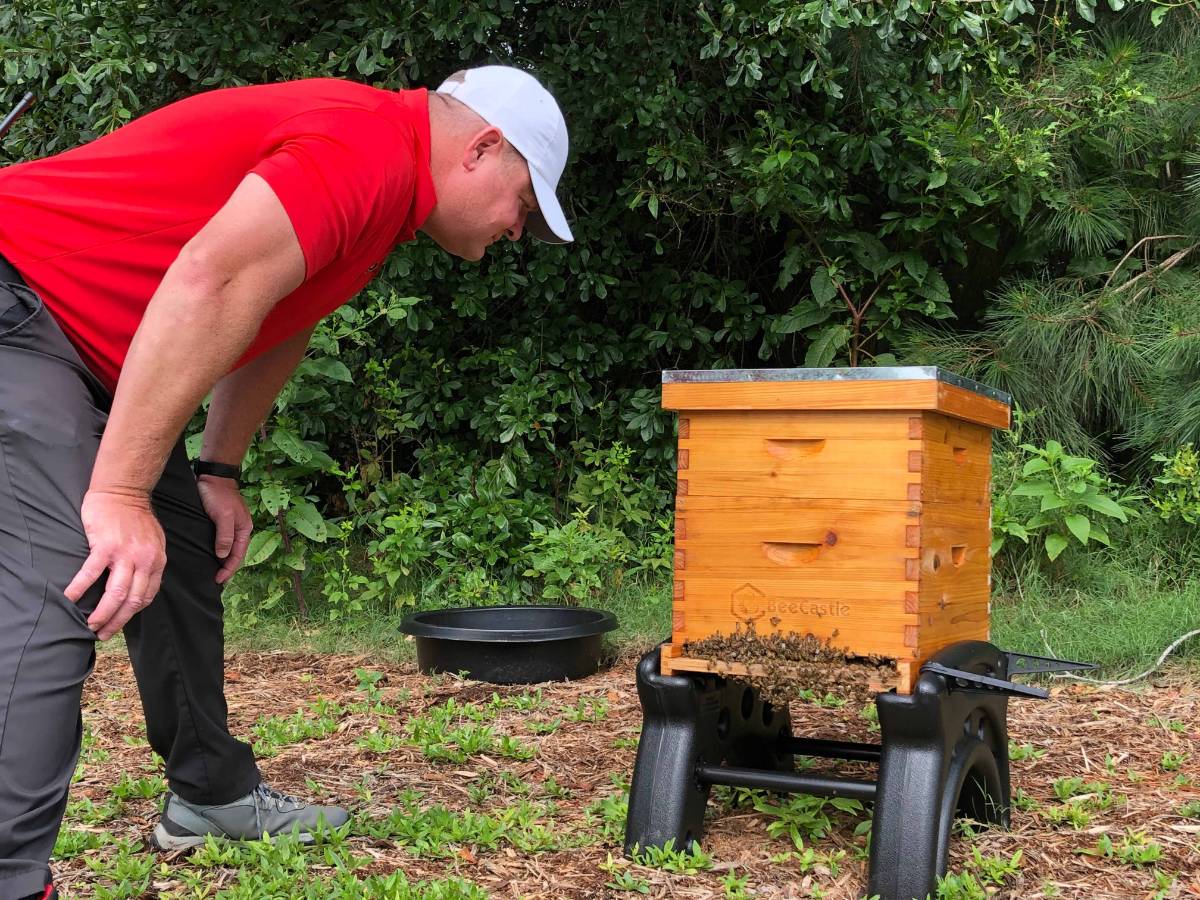The BEE Team at the UGA Golf Course Brings Awareness to Bee Pollination
Monday, August 8, 2022

View article in the Auxiliary Roundup Newsletter (PDF)
Honeybees have been a teaching and research topic at the University of Georgia for many years. These insects are important to American agriculture because they pollinate a wide variety of crops, contributing to food diversity and security. The UGA Golf Course is the latest group to commit to the mission of sustainable bee management.
Scott Griffith, the course Superintendent and Assistant Golf Course Manager, was first introduced to bees in late 2021. Since then, he has taken an interest in bees and pursued opportunities to add a hive on the golf course “It was not only for education, but also a tool for general awareness of the importance of bees,” said Griffith.
Some help was required to get started on the project, so Griffith contacted an expert in Jennifer Berry, the Research Professional IV and Lab Manager at the UGA Bee Laboratory. Over the last two decades, her research objectives have been to improve honeybee health and the effects of pesticides on insects.
However, Berry had her doubts before getting started on the project because of the environmental stigma that surrounds golf courses nationwide. After some time together, Griffith showed her how the UGA Golf Course works on many levels to have a low operational impact on the environment and provides many opportunities for soil research and biodiversity.
For example, the golf course is a member of Audubon International, which focuses on implementing environmentally friendly management practices that ensure natural resources are conserved. After having many of her doubts erased, Berry saw that it was a great outlet for educating the public about pollinators and all other insects. “Any opportunity where we can reach out to the public about the importance of pollinators, I’m all for,” she mentioned.
One of Griffith’s main goals is to change any misperceptions of the golf course, as he has done with Berry. Some ways that the grounds team accomplishes that are through hand-watering and employing wetting agents that reduce the amount of water needed at the course.
The bees first arrived at the golf course in March of this year, and the hive currently sits at the 10th hole on the course. However, Griffith is looking to add more.
“I would like 5 or 6 hives. If we do that, we provide pretty good recognition to the bees,” he said about his long-term plans for the project.
It has been a win-win situation for the golf course and for Jennifer Berry, who enjoys being able to reach a new clientele that may not be aware of the role that they can play for bees.
“Everyone can protect pollinators. You don’t have to plant a whole garden or forest to help.”